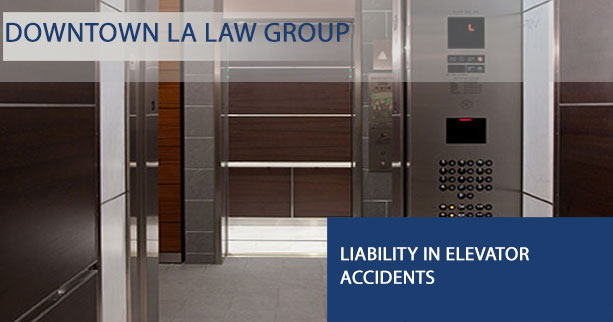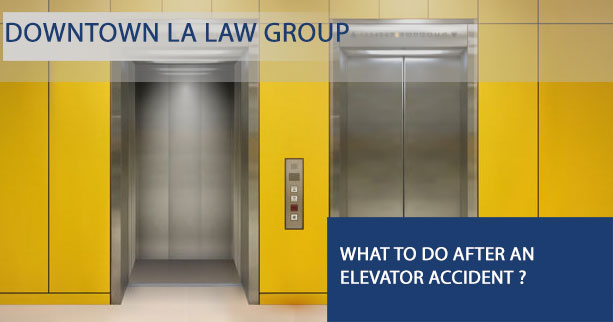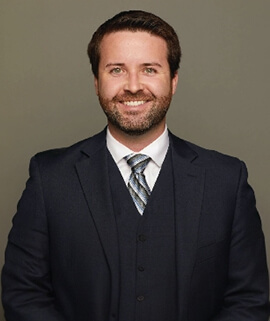Elevator Accident Liability
There are hundreds of thousands of elevators in buildings across the country. They are present everywhere, from apartment buildings to outlet stores, to offices and malls, to parking lots and hospitals. Some elevators go up dozens of floors, while others only travel thirty or forty feet upward. No matter what kind of elevator you are on, you deserve the same duty of care, as an elevator accident will be devastating regardless of the type. Liability issues with elevators can be troublesome, and companies and property managers should make sure that all elevators are properly maintained and do not present any dangers to guests. If you are injured in any kind of elevator accident, or if a family member or loved one died in such an incident, reach out to the Downtown LA Law Group for assistance with your claim.

Causes of Elevator Accidents
Elevators are essentially pulley systems. The elevator car is transported up to different floors and brought back to ground level. In the most devastating cases, the cables that hold the elevator up can snap, causing the elevator to freefall to the ground. These accidents result in numerous fatalities per year. In some buildings, property owners do not conduct ample maintenance. Many elevators are not up to code and have not been investigated in some years. A few of the causes of elevator accidents include:
- Failure to properly level or even out when ascending or descending, which can cause trip and falls
- Outdated, damaged, broken, or inconsistent safety devices on the elevators
- Broken jacks
- Poor design
- Broken elevator controls, such as doors that won’t close or emergency stop buttons that won’t work
- Excessive sway, inadvertent motion, pre-emptive descents or ascents
- Unaffixed or broken pit ladders
- Large gap between building floor and elevator floor
- Ungrounded wires or exposes wires that can cause electric shocks and electrocution
- Wrong weight limit signs leading to excessive weight from people and items being piled onto the elevator
- Power failure
- Overheating
- Improper installation or repair
 Elevator accidents can range from the simple fall to the tragic fatality. It is important that you always take as much precaution as possible on elevators, and if you have the physical ability to use the stairs, you may consider it an option. It is generally safer and you are not as dependent on the consistency and proper workings of the elevator.
Elevator accidents can range from the simple fall to the tragic fatality. It is important that you always take as much precaution as possible on elevators, and if you have the physical ability to use the stairs, you may consider it an option. It is generally safer and you are not as dependent on the consistency and proper workings of the elevator.
Elevator Door Accidents – Swing Doors
Without a doubt, elevator doors, in general, present a hazard. Most of us never consider the risk presented by elevator doors. We simply walk into the elevator car and wait to arrive on the desired floor. However, there are many potential issues with these doors. Primarily, the sensors could be defective, causing the door to shut prematurely and possible on unsuspecting party’s hands, arms, legs, feet, etc. possibly leading to devastating injuries when the elevator car moves.
However, many people do not seem to realize the severe danger represented by swing doors – specifically to young children. Swing door elevators are popular in homes for personal use, as they do not require as much space as traditional elevators. Unfortunately, swing door elevators have a long history of dangers associated with faulty designs. The issue comes from the gap between the swing door (which allows users to open the door and step into the elevator car) and the elevator car door. The gap between these doors is large enough for small children to become trapped between them after opening the swing door and the door latching behind them. In general, the elevator car door/gates only open to the floor when the appropriate button is pressed. This means that the child, who is trapped between the doors) can get pinned if the elevator car starts moving.
Let’s consider one incident in particular that left a young child severely injured. The incident occurred in late 2010. A 3-year-old boy tried to follow his mother upstairs after she had gone up for laundry. The boy stood up on his tiptoes and opened the elevators outer door, the swing door, which looked like and worked line any other normal door in the house. He stepped in and the swing door closed and latched behind him, trapping him against the inner door of the elevator car. Soon after, his mother started hearing noises coming from downstairs. She pressed the elevator button to head down. This caused her son to be dragged upwards (as the elevator car was on the main floor); the elevator car traveled just a few feet and came to a stop. However, the elevator car went back down, causing the boy to be pushed feet-first into the elevator shaft where he eventually was pinned at the chest and at the neck causing him to suffocate. The boy was left with severe brain damage, unable to speak, and quadriplegic.
This incident is just one of many. Multiple children have lost their lives or suffered permanent injuries due to elevator swing door incidents. The elevator industry, however, is aware of the design defect present in swing door elevators but has not taken any real action to remedy the situation. In fact, although the gap limits between the doors was placed at four inches at one point, this was later relaxed to five inches. In addition, manufactures eventually shifted to using accordion doors for the elevator car, which created even more space for children to get trapped in. Today, some manufacturers offer safety options like infrared sensors or safety gates for an added fee; these safety options have not become standard.
If your child suffered injuries in a swing door elevator incident, you could certainly have grounds to file a lawsuit. It is essential that you see legal assistance as soon as possible to learn more about your legal options, including your right to sue and your right to possibly recover compensation.
Our Recent Verdicts and Settlements
$1.96 Million
$1.4 MIllion
$600,000
$825,000
$500,000
$460,000
$420,000
$525,000
Elevator Roof Panel Fell On My Head and Caused a Head Injury
An elevator roof panel can fall down on your head, and cause a serious head injury. Many people don’t realize that there are a plethora of housings, joints, motors and mechanisms that are housed on top of an elevator. There are clips, bars, panels, wiring and fasteners that are located on top of an elevator. If any of these housings are loose, installed improperly or defective, it will be easy for the elevator roofing to fall down.
Elevators are maintained by the building maintenance department, building owner, or building manager or property manager. These individuals are responsible for ensuring that the elevators in the building are regularly inspected and in excellent working order. This responsibility to maintain the elevators does not transfer to anyone else. The people using the elevator are expecting to have a normal elevator trip from one floor to another. No one anticipates the roofing panel of an elevator to come crashing down on the person’s head. If there are elevator roofing panels that are defective, dirty, used or dangerously not maintained, then this issue needs to be managed by the building manager, building owner or building maintenance department.
Injuries from Elevator Accidents
You may suffer a number of injuries from elevator accidents. Elevators that enter freefall can cause death and other severe injuries, but many damages can occur with simple incidents, like the improper leveling of the elevator when the doors open. Trip and falls and other incidents can lead to the following types of injuries:
- Broken bones
- Fractures
- Spinal cord damages
- Disc injuries
- Knee and hip damages
- Sprains
- Dislocations
- Torn muscles
- Nerve damage
- CRPS
- Concussion
- Traumatic brain injuries
- Severed limbs and digits
- Loss of blood
- Paraplegia and quadriplegia
- Coma
- Death
Whether your elevator accident was minor or major, you should reach out to a skilled lawyer to represent you. It is not recommended to try and take legal action if you never have before, especially not if you were seriously hurt.
Liability in Elevator Accidents – Common Carrier and Premises Liability
Elevator accidents can be attributed to the negligent oversight by the property owner. This would entail basic premises liability. That is, all property owners must protect guests and individuals on the property by ensuring that there are no dangers present. Guests can fall under three categories. They are either:
- Invitees, or those on the property to complete a mutual transaction, such as customers in a store
- Licensees, or social guests who may have been on the property before and were invited in
- Trespassers, who have no legal right to be present on the property
Invitees are granted the highest duty of care, while licensees are granted less. Trespassers are not given nearly as many rights, but they still cannot be injured because of traps or if the property is widely used for trespassing and no illegal activities are occurring. If you wish to file a claim, you must be able to show one of three points concerning the property owner:
- The property owner created the hazard or danger with the elevator
- The property owner was aware of the issue with the elevator and took no action to fix it, provide warnings, or prevent people from using it
- The property owner was not aware of the elevator’s problems but reasonably should have been had he been attentive and careful in his investigation
The majority of elevator incidents can be attributed to a lack of maintenance. Therefore, it is reasonable to assume that the property owner simply did not hire any engineers to oversee the elevator’s status or did not have anyone inspect it for defects or malfunctions. The elevator may have been properly installed and examined initially, but years of wear and tear and usage could have contributed to the problems.
Learn more about your options for compensation by calling (855) 339-8879.
It is also important to understand common carrier liability. In California, common carriers are defined as companies that transport people around the state. Because elevators are a form of transportation, the companies and owners using them are considered common carriers. According to California law, specifically CaCl No. 902: “Common carriers must carry passengers safely. Common carriers must use the highest care and the vigilance of a very cautious person. They must do all that human care, vigilance, and foresight reasonably can do under the circumstances to avoid harm to passengers. While a common carrier does not guarantee the safety of its passengers, it must use reasonable skill to provide everything necessary for safe transportation, in view of the transportation used and the practical operation of the business.” Common carriers are subjected to a much higher level of care because the individuals being transported essentially have no way to alter the trip and their safety is at the hands of the carrier. Therefore, if a public bus crashes, the company and driver can be held accountable because the passengers had no ability to affect the crash or escape from it. The same can be said of elevators – those present and riding the elevators cannot affect the trip up or down, and if there is a malfunction, they cannot do anything to alter it or adequately protect themselves. Therefore, common carriers must exercise extreme care over passengers.
Elevator Maintenance Company Failure to Maintain the ElevatorSo far, we’ve talked quite a bit about the property owner’s responsibility for people being injured in an elevator. Certainly, we can all agree that owners and operators of a building are generally responsible if something on their premises causes harm to another individual. But an elevator is not something that most people can manage on their own. Thus, it’s important to discuss the concept of elevator maintenance company liability for incidents of injuries from an elevator.
As you are probably aware, elevator servicing companies have professionals that are trained to inspect and repair elevators. Unfortunately, lack of training / certification, carelessness on the job, and other issues can lead to accidents with devastating consequences. Acts of negligence by an elevator maintenance company include failure to check weights and failure to inspect door sensors.
Making sure that the elevator stops where it should exactly at the right time is another duty that these companies have to the general public. Negligence by inspectors and other employees of the company can result in failure to check automatic stop systems or failure to inspect the elevator not suddenly dropping. Furthermore, elevator maintenance technicians must check for signs of misleveling, meaning that the elevator floor is not aligning with the floor of the building. Failure to inspect elevator leveling to ensure the elevator stops on the correct floor is a leading cause of trip and fall accidents at office and apartment buildings.
Depending on the circumstances, you may have grounds for a third party lawsuit against the elevator maintenance company, as well as a claim against the owner and operators of the building. This is essential to receiving every penny you are due as an injury victim, so contact us immediately to discuss your case with an elevator accident lawsuit attorney.
What to Do after an Elevator Accident
If you have been hurt in an elevator accident, it is important that you get enough evidence to file a lawsuit against the responsible party. Without adequate proof, your claim will not be successful. You should follow this procedure:
- Go to the emergency room for treatment
- Hold on to medical notes, receipts, and prescriptions to show the treatment you received
- Get photos of your injuries
- Get security footage if available
- Take pictures of the scene of the incident and the elevator
- Get eyewitness statements and bystander testimonies
- File an incident report with the building owner, company, or property manager
- Do not accept any compensation from the property owner or manager if you were a guest or customer at the location
- Keep any documents showing you were present in the elevator, such as a receipt from the store, a train ticket, a bank statement showing you paid for a hotel room, and anything else
It is essential that you contact a skilled elevator accident attorney who can handle your case for you, as you may not have the legal experience required to win your claim. You may be let injured and lack money, knowledge, and time – and the stress of the case can further impact your recovery and lengthen the time it takes for you to return to health.
Elevator Accident Compensation
You should be given fair compensation from the responsible party if you were hurt in an elevator accident. Your case will be valued according to the degree of injuries you suffered and how much of an impact they had on your life and career. Our lawyers will strive to negotiate the maximum settlement for you. We will see to it that you are covered for the following expenses:
- Medical bills for surgery, hospitalization, physical rehabilitation, medication, future treatments, and more
- Property damage for your lost or broken items
- Lost income from time you could not attend work, from both the past and future
- Pain and suffering damages for PTSD, anxiety, fear, emotional anguish, and more
- Wrongful death damages in the event a family member or loved one died, which can include funeral and burial fees, pre-death pain and suffering, pre-death medical bills, loss of relations and consortium, loss of expected savings and inheritance, and more
Learn more about your legal options: call (855) 339-8879 to speak with a representative now.
You are entitled to ample restitution if you were hurt as a passenger on an elevator. Let our lawyers win your case for you so you can receive what you rightfully deserve.
Our Promise
The Downtown LA Law Group promises to work around the clock to win you the restitution you need if you or a loved one were injured in an elevator accident. We have recovered hundreds of millions of dollars for our clients throughout the years, and our expert attorneys are consistently rated as the best in town at what they do. We are aggressive and relentless in our pursuit for your settlement, and if we need to go to court to win your claim, we are willing to do so. For a free legal consultation, call our law offices today. We will discuss your case with you, its value, the legal process, and what you can expect moving forward. You can ask us questions you need answered. If you hire us, we’ll give you a zero fee guarantee. This states that you won’t pay any money out of pocket for our services. We will only get paid if we win and the money will be taken from the settlement we bring you. If we lose, we earn nothing at all. Either way, your savings will remain untouched. Reach out to the Downtown LA Law Group today for representation for your elevator accident lawsuit.
– Elevator Accident Lawsuits
– Escalator accident attorney
– Slip and Fall Accidents in Stores and Shopping Malls
– Slip and Fall Attorney Los Angeles
– Shopping Mall and Strip Mall Accidents
– Common Places Where Slip and Fall Accidents Happen
– Sidewalk Injuries Lawyer
– Cracked sidewalk Injury
– Service Elevator Accident Lawsuits
– Elevator accident liability









